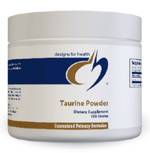
L-carnitine helps burn fat without causing muscle loss! Overweight subjects benefited from supplementation with the amino acid L-carnitine in a study conducted at the University of Rostack Children’s Hospital Research Laboratory in Germany. Study subjects supplemented three grams of L-carnitine daily for 10 days. At the end of the study, researchers noted that the subjects experienced a significant increase in fat burning without attendant protein breakdown leading to muscle loss.
Metabolism 53(8):1002-1006, 2004
Designs for Health CarniClear™ supersaturated carnitine liquid is a pleasant naturally flavored non-acidic liquid form of carnitine, conveniently delivered in two sizes: 8 oz economy and 1 oz for travel. This product is both the most convenient, and most affordable way of delivering the multi-gram dosing of carnitine that is most often prescribed by health care practitioners.
In addition to the pure base L-carnitine, CarniClear™ contains small amounts of highly purified glycerine and 500 mcg of vitamin B12 and 100 mg of vitamin B5 (Pantothenic Acid). Vitamin B5 is added to support a necessary step in fat metabolism, the synthesis of Coenzyme A, which is essential for the transport of fat by l-carnitine. Vitamin B12 is an important cofactor in many metabolic pathways, including endogenous carnitine synthesis. Diets low in animal meat are very deficient in Vitamin B12, as well as carnitine.
L-Carnitine is a compound naturally occurring in all foods but significant amounts are only found in dark meats (due to high concentration of mitochondria), for example: lamb (190mg/4 oz), beef (143mg/4 oz), poultry(13mg/4 oz), fish (3-10mg/4 oz).
Carnitine supplementation may be needed especially for vegetarian diets or when dark meats are consumed in small amounts because neither preformed carnitine nor its precursor amino acids are ingested in adequate amounts to support optimal health.
*These statements have not been evaluated by the Food and Drug Administration. This product is not intended to diagnose, treat, cure or prevent any disease.












